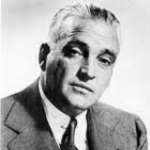Background
Marshall Field was born on August 18, 1834 near Conway, Massachussets, United States; the son of a farmer, John Field IV and his wife Fidelia Nash.

Marshall Field was born on August 18, 1834 near Conway, Massachussets, United States; the son of a farmer, John Field IV and his wife Fidelia Nash.
Field attended local schools until he was 17.
Marshall Field clerked in a dry-goods store in Pittsfield, Massachusetts. In 1856 he went to Chicago, where he worked for Cooley, Wadsworth and Company, a wholesale dry-goods firm, in 1861 becoming the general manager and a partner. In 1864 Levi Z. Leiter, a large-scale real estate operator, joined the company as a silent partner. When Potter Palmer, an entrepreneur and real estate developer, joined his dry-goods business with Field's and Leiter's, the company became Field, Palmer, and Leiter. When Palmer retired in 1867 and Leiter in 1881, the organization became Marshall Field and Company, owned almost entirely by Field and run directly by him.
The field was, in fact, the source and inspiration of the ideas that revolutionized retail selling everywhere. The Field enterprise was highly diversified. It sold wholesale dry goods through a sales force reaching small stores all over the Midwest; manufactured dry goods in factories in the British Isles, France, and elsewhere; had its own buying offices all over the world; and operated its retail department store, Marshall Field, and Company, in Chicago. When Field died on January 16, 1906, the store covered some 36 acres over 11 Chicago blocks, the largest establishment of its kind.
As a merchant, Field was responsible for many innovations. The reliability of his store was well known. His sales grew from $12 million annually in 1868 to $25 million in 1881 and $68 million in 1906. Meanwhile, Field pushed the development of downtown Chicago, so that when he died, half of his fortune, estimated to be between $100 million and $150 million, was in Chicago properties. He wished to make Chicago a great educational and cultural center and gave large sums to various institutions.
Marshall Field established one of America's first innovative wholesale and retail dry-goods businesses, Marshall Field and Company. He introduced the one-price system, bought and sold for cash, and permitted exchange of goods. Various customer services were also initiated or early adopted by Field: restaurants, personal shoppers, home delivery, an interior decoration department, and a bargain basement.
He helped found the Art Institute, donated the land on which the first buildings of the University of Chicago were erected, and contributed $1 million for the museum at the World's Columbian Exposition. In addition to gifts during his lifetime his $8-million bequest built the Field (later Chicago) Museum of Natural History.
Field was a very active member of The Commercial Club of Chicago and the Jekyll Island Club.
Field married twice. In 1863, he married to Nannie Douglas Scott of Ironton, Ohio. They had two sons and a daughter. One son, Louis, died in 1866 as an infant. The surviving children were Marshall Field Jr. and Ethel Field. After the death of Nannie in 1896, Field married longtime friend Delia Spencer. They had no children together.
Marshall Field II (1868-1905) had been expected to succeed his father, but he showed little interest in the firm. He died at the age of 37 as a result of either a gun accident or suicide, on Nov. 27, 1905.

